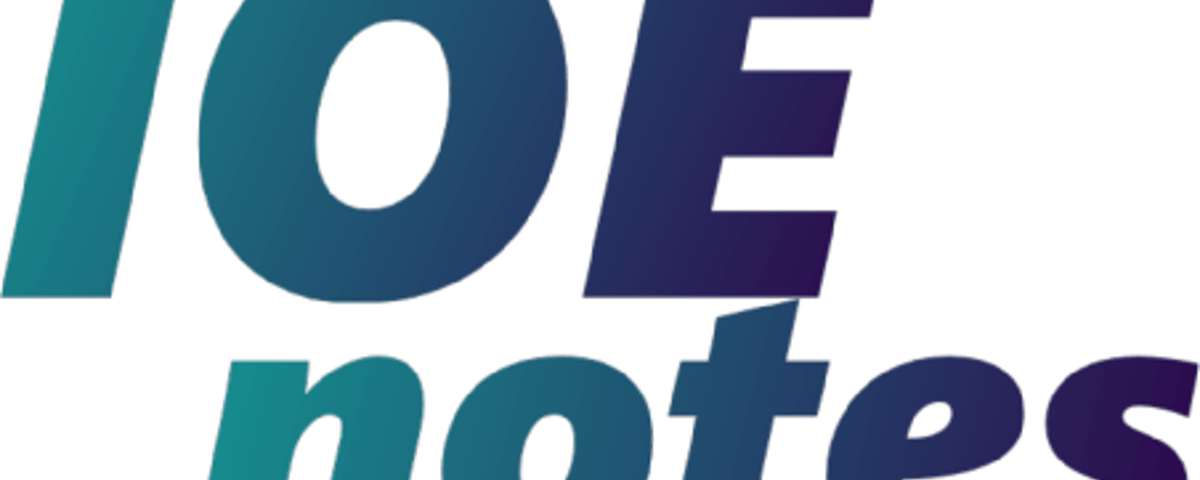C programming (Subject code: CT401) is compulsory course for all faculties engineering including BCE, BME, BEL, BEX, BAME, BCT, BIE, B. Agri. and BGE. This subject includes basic understanding of programming in C and Fortran. The notes, lecture slides and other important resources for C programming can be accessed from C Programming and Fortran Notes Collection page.
- Overview of computer software and programming languages ( 2 hours)
- System software
- Application software
- General software features and recent trends
- Generation of programming languages
- Categorization of high level languages
- Problem Solving Using Computer ( 2 hours)
- Problem Analysis
- Algorithm Development & Flowcharting
- Compilation and Execution
- Debugging and Testing
- Program Documentation
- Introduction to C programming( 3 hours)
- Character set, Keywords and data types
- Preprocessor and directives
- Constants and Variables
- Operators and statement
- Input and Output ( 2 hours )
- Formatted I/O
- Character I/O
- Programs Using I/O statement
- Control statements (6 hours)
- Introduction
- The goto, if, if….else, switch statements
- The while, do…while, for statements
- User-Defined Functions ( 4 hours)
- Introduction
- Function definition and return statement
- Function Prototypes
- Function invocation, Call by value & Call by reference, Recursive Functions
- Arrays and Strings ( 6 hours)
- Defining an array
- One dimensional arrays
- Multi-dimensional arrays
- Strings and string manipulation
- Passing array and string to function
- Structures ( 4 hours )
- Introduction
- Processing a structure
- Arrays of Structures
- Arrays within structures
- Structures and function
- Pointers ( 4 hours )
- Introduction
- Pointer declaration
- Pointer arithmetic
- Pointer and array
- Passing Pointers to a function
- Pointers and structures
- Data files ( 4 hours )
- Defining opening and closing a file
- Input / Output operations on files
- Error handling during input/output operations
- Programming language: FORTRAN ( 8 hours )
- Character Set
- Data types, Constants and variables
- Arithmetic operations, Library functions
- Structure of a Fortran Program
- Formatted and Unformatted Input / Output Statements
- Control Structures: Goto, Logical If, Arithmetic If, Do loops
- Arrays: one dimensional and two dimensional
Evaluation Scheme:
| Chapter | Hours | Mark Distribution |
| 1,2 | 4 | 8 |
| 3,4 | 5 | 8 |
| 5 | 6 | 10 |
| 6 | 4 | 8 |
| 7 | 6 | 10 |
| 8 | 4 | 8 |
| 9 | 4 | 8 |
| 10 | 4 | 8 |
| 11 | 8 | 12 |
| Total | 45 | 80 |
There may be minor deviation in marks distribution.
Laboratory – Minimum 6 sets of computer programs in C (from Unit 4 to Unit 10) and
2 sets in FORTRAN (from unit 11) should be done individually. (30 marks out of 50 marks) –
Student (maximum 4 persons in a group) should submit mini project at the end of course.
(20 marks out of 50 marks)
References
- Kelly & Pohl, “A Book on C”, Benjamin/Cumming
- Brian W. Keringhan & Dennis M. Ritchie, “The ‘C’ Programming Language”, PHI
- Bryons S. Gotterfried, “Programming with C”, TMH
- Yashavant Kanetkar, “Let Us C”, BPB
- D. M. Etter, “Structured Fortran & for Engineers and Scientist”, The Benjamin/Cummings Publishing Company, Inc.
- Rama N. Reddy and Carol A. Ziegler, “FORTRAN 77 with Applications for Scientists and Engineers”, Jaico Publishing House
- Alexis Leon, Mathews Leon, “Fundamentals of Information Technology”, Leon Press and Vikas Publishing House



2 Comments
[…] (BME) in First year. The micro syllabus of the course with marking scheme can be accessed from IOE Syllabus of C Programming […]
Do we have to read and practice C programming only for the 1st semester in Civil Engineering ?
OR
Any other programming too…